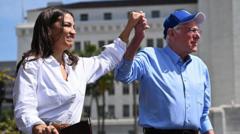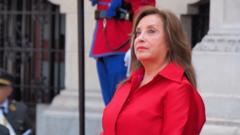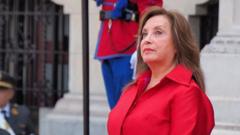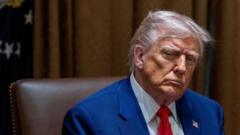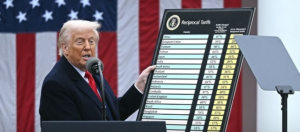In a pivotal moment for South Korean politics, Prime Minister Han Duck-soo has officially announced his resignation as acting president, aiming to contest the upcoming presidential election set for June 3. This decision follows a turbulent political landscape marked by the impeachment of former President Yoon Suk Yeol, who appointed Han as his second-in-command. Han's departure from the acting presidency comes in the wake of a Supreme Court ruling that casts uncertainty over the prospects of Lee Jae-myung, the Democratic Party's leading candidate for the presidency.
South Korea's Acting President Resigns, Signaling Presidential Ambitions Amid Political Unrest

South Korea's Acting President Resigns, Signaling Presidential Ambitions Amid Political Unrest
In a dramatic political shift, South Korea's acting leader has stepped down, sparking speculation regarding the upcoming presidential election.
Mr. Han has been contemplating his run for weeks, and although he did not explicitly confirm his candidacy in his resignation statement, political analysts interpret it as a strong indication of his intent to seek the presidency. Han is expected to clarify his presidential ambitions at a press conference scheduled later this week, according to local media sources.
Ever since Yoon's controversial declaration of martial law led to significant unrest and ultimately his removal from office, South Korea has been in a state of political upheaval. Han noted the importance of his resignation in helping navigate the ongoing crisis, suggesting a sense of urgency for stability as the June election approaches.
The nation's political landscape remains charged, with Han's resignation likely to change the dynamics among candidates, particularly amidst legal challenges facing Lee Jae-myung, who has been a primary contender in the election polls.
This transition indicates not only a potential shift in leadership but also highlights the resilience of South Korean democracy as it grapples with a history of political volatility. As the country braces for the upcoming election, observers will undoubtedly be keenly watching the evolving political narrative leading up to June 3.
Ever since Yoon's controversial declaration of martial law led to significant unrest and ultimately his removal from office, South Korea has been in a state of political upheaval. Han noted the importance of his resignation in helping navigate the ongoing crisis, suggesting a sense of urgency for stability as the June election approaches.
The nation's political landscape remains charged, with Han's resignation likely to change the dynamics among candidates, particularly amidst legal challenges facing Lee Jae-myung, who has been a primary contender in the election polls.
This transition indicates not only a potential shift in leadership but also highlights the resilience of South Korean democracy as it grapples with a history of political volatility. As the country braces for the upcoming election, observers will undoubtedly be keenly watching the evolving political narrative leading up to June 3.




